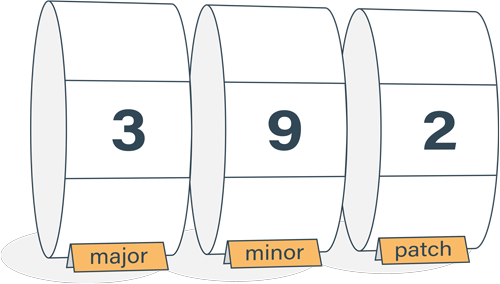Choose between Formidable, Busboy, Multer and Multiparty for processing file uploads
There are a few npm packages out there for reading and processing a multipart/form-data request on a Node.js server. Each has their own design philosophy. Some are meant to be used with Express.js, some as standalone. Some store intermediate files in hard disk or in memory. Digging through each of them and choosing which one is right for you can take time. Here's a guide for deciding which library suits you best.
Before diving in, you want to decide:
- Do you need Express.js or not?
- Is saving intermediate files ok, or do you want to stream the files?
- If saving intermediate files is alright, would you prefer them in memory or on hard disk?
Breakdown of most popular packages
Formidable has been around the longest, having released its 1.0 version in 2011. It also has the most weekly downloads on npm. It's not Express.js specific, and it saves files in temporary directory on hard disk.
Busboy is an event-based streaming parser that's not tied to Express.js. Instead of storing intermediate files, it provides a stream to the incoming file. It's been around since 2013. The core multipart/form-data implementation has been extracted to a separate dicer module.
Multer is an Express.js middleware that's been around since 2015. It saves intermediate files either in memory or on hard disk and populates req.files object for consuming the files. You can have fine-grained control over which fields allow files and limit the number of uploaded files. Internally, Multer uses Busboy.
Multiparty is a fork of formidable from around 2013. It has the same functionality as Multiparty, but also allows streaming the files. However, in their documentation, Multiparty recommends using Busboy for a faster alternative.
| Formidable | Busboy | Multer | Multiparty | |
|---|---|---|---|---|
| npm weekly downloads | 2.1M | 1.2M | 0.6M | 0.3M |
| Year | 2010 | 2013 | 2015 | 2013 |
| Express.js middleware | ✓ | |||
| Streams | ✓ | ✓ | ||
| Intermediate files on disk | ✓ | ✓ | ✓ | |
| Intermediate files in memory | ✓ |
Use Formidable or Multer for proof of concepts and low volume
There are cases where you don't mind storing intermediate files. It could be that you're writing a prototype, or that you're going to have at most few admin users handling the file upload duties. Either way, you don't mind the server potentially getting busted by memory running out or a hard disk filling up. This is perfectly ok for some cases.
Think if you need Express and whether you'd like the files in memory or on hard disk.
Without Express: use Formidable
If you want to process file uploads outside of Express.js, you've got two options: Formidable and Multiparty. Multiparty is a fork of Formidable with added streams. But, Multiparty recommends using Busboy. Formidable has 7x more users; thus, in the case of something breaks, you're most likely get more help from the Formidable community.
Keep in mind that in this case, you don't have the option of storing files in memory, but only saving to temp files on disk.
Express.js and files in memory: use Multer
You can use the standalone libraries together with Express.js. So, you've got three options: Formidable, Multer and Multiparty.
If you want to store files in memory, it's an easy pick. Only Multer supports it.
Express.js and temporary files on disk: use Multer or Formidable
If you want to save files in a temporary directory on disk, you've got two options Multer and Formidable. Both are good choices with solid user-base. If you want more fine-grained control over what input fields allow files and limit the number of files, go with Multer.
| store files in memory | store files on disk | |
|---|---|---|
| Express.js | Multer | Multer (for fine-grained control) Formidable |
| without Express.js | - | Formidable |
Use Busboy for high-volume production-grade solution
When you've got a high-volume situation and want the most reliability from your server, the best option is to not store intermediate files on the Node.js server at all. Instead, you want to push the files to a separate file server as soon as you receive them. The file server can be a cloud storage service such as AWS S3 or a database that supports BLOBs.
To make this happen, streams are the optimal way of handling the incoming file data. The alternatives are Busboy and Multiparty. But, since Multiparty recommends using Busboy, we have an easy pick: use Busboy.
Visual guide
Here's a visual guide to looking at the choices.

Related articles

Semantic Versioning Cheatsheet
Learn the difference between caret (^) and tilde (~) in package.json.
